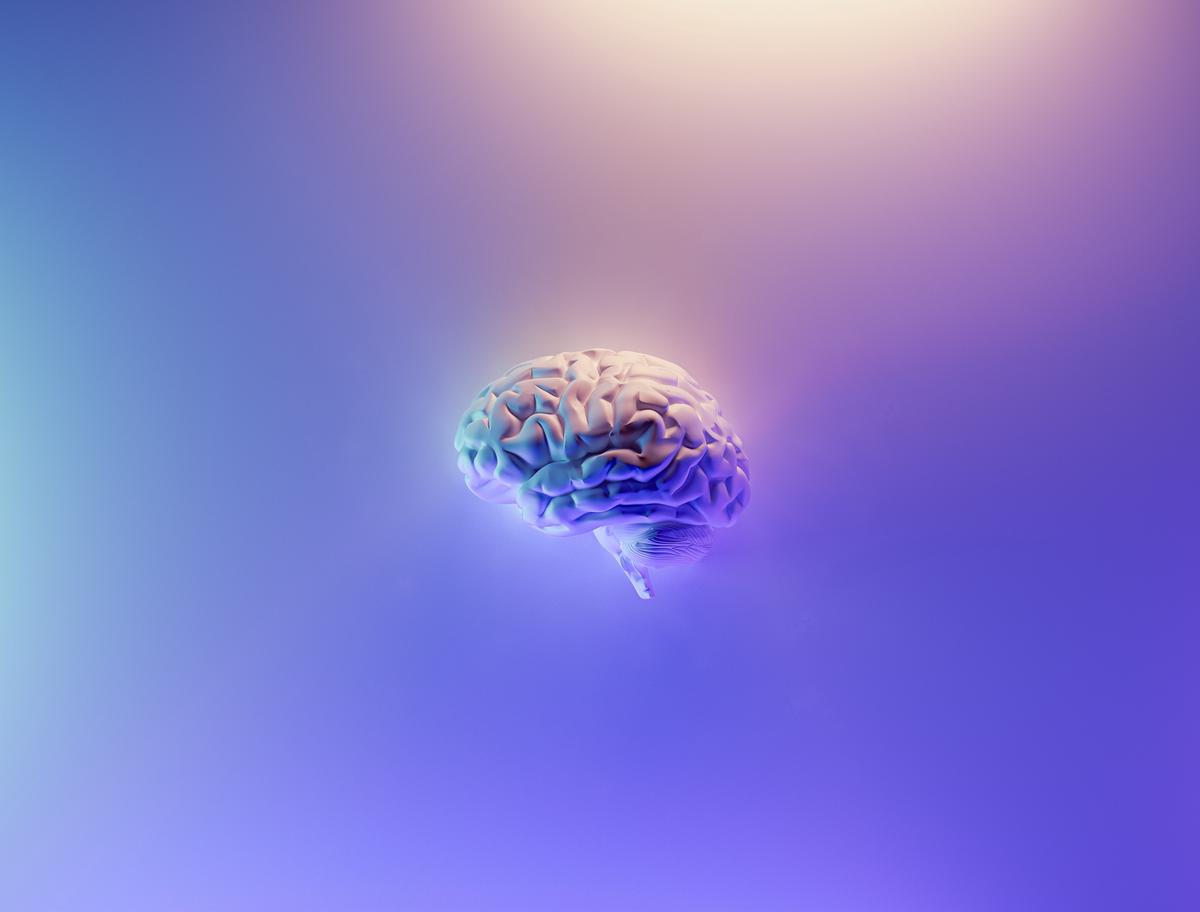Mental health is an essential aspect of overall well-being, and often overlooked compared to physical health, especially among young adults. This piece delves into the fundamental concepts of mental health, the importance of identifying mental health issues, strategies for self-care, and explores valuable resources for professional help. Understanding our mental health is the first step towards developing successful methods to promote and maintain it, while also improving the quality of our daily lives. As a young adult standing at the threshold of numerous life changes, it is crucial to equip oneself with the knowledge and tools to navigate this challenging, yet rewarding, phase of life.
Understanding Basic Concepts of Mental Health
Understanding Mental Health: More Than Just a State of Mind
Mental health refers to our emotional, psychological, and social well-being. It affects how we think, feel, and act, and influences how we handle stress, perceive ourselves, and relate to others. It’s an integral component of our overall health. According to the World Health Organization (WHO), mental health is a “state of well-being in which the individual realizes his or her own abilities, can cope with the normal stresses of life, can work productively and fruitfully, and is able to make a contribution to his or her community.”
Mental health is fundamental to our capacity to live satisfying lives. However, the reality is that mental health issues are prevalent. Data from the National Institute of Mental Health indicates that nearly one in five U.S. adults live with a mental illness (46.6 million in 2017), and, according to Psychiatry.org, the prevalence of any mental illness was highest among adults aged 18-29.
The Genesis of Mental Health Conditions
The development of mental health conditions is influenced by a complex interplay of genetics, environment, and lifestyle. Genetics can predispose individuals to certain mental health issues, but that does not guarantee their manifestation. Studies reveal that individuals with a family history of mental health disorders are at a higher risk, but other factors usually contribute to triggering the condition.
Environmental factors can greatly impact mental health. These may include life experiences, such as trauma or a history of abuse, as well as exposure to certain toxins, illnesses, drugs or alcohol during prenatal development or at a young age. Furthermore, lifestyle choices, such as diet and exercise, substance use, stress management, and human connections, play significant roles in maintaining mental health.
The Importance of Maintaining and Improving Mental Health
Maintaining good mental health is crucial as it impacts every aspect of life, from relationships and physical health to productivity and coping mechanisms. There is a strong link between mental and physical health; poor mental health can lead to chronic physical conditions and vice-versa. For instance, depression can lead to low immune function, while chronic physical diseases can lead to higher rates of depression.
Understanding and monitoring our mental health is important to ensure early detection and intervention if issues arise. It’s crucial to acknowledge and address mental health issues rather than ignore them, because untreated mental health problems can lead to severe implications, including suicide. According to the Centers for Disease Control and Prevention (CDC), suicide was the second leading cause of death among individuals between the ages of 10 and 34 in 2018.
Self-Care: An Essential Element in Mental Health Management
Self-care plays a key role in promoting and preserving mental health. It involves activities and practices we engage in on a regular basis to reduce stress, maintain and enhance our mental, emotional, and physical health. This can range from maintaining a healthy lifestyle with diet and exercise, to practicing mindfulness and stress management techniques, maintaining a healthy sleep schedule, seeking professional help when needed, and fostering supportive relationships. Positive self-care habits are powerful tools in managing mental health and fostering resilience, preventing mental health disorders, and promoting overall well-being.
As a young adult, it’s crucial to grasp the intricacies of mental health which is shaped by an interplay of genetic factors, environmental influences, and lifestyle choices. Recognizing the significance of this aspect of health and wellbeing, as well as the role of self-care, is essential to effectively manage one’s psychological state.

Identifying Mental Health Issues
Spotting Signs of Mental Health Conditions
Recognizing the signs indicating potential mental health issues is one of the first steps in preserving your mental well-being. Disorders such as depression, anxiety, and bipolar disorder are fairly common. Symptoms might be subtle and vary significantly from person to person, but being mindful of certain common indicators can assist in the early detection of these conditions.
Common Symptoms
Depression often presents with symptoms like persistent feelings of sadness, loss of interest in activities, excessive fatigue, changes in sleep patterns or appetite, difficulty concentrating, and recurrent thoughts of death or suicide. Anxiety, meanwhile, is marked by excessive worry, restlessness, sleep disturbances, irritability, and physical symptoms like rapid heart rate and muscle tension.
Bipolar Disorder, on the other hand, includes periods of unusually intense emotion, changes in sleep patterns and activity levels, and unusual behaviors. These distinct periods are known as mood episodes, which are drastically different from the moods and behaviors typical for the person.
Being knowledgeable about these possible signs can make it easier to recognize them either in oneself or in others.
Importance of Early Detection and Seeking Help
When it comes to mental health, early detection can often mean a better prognosis. Acknowledging the signs and symptoms of a mental health disorder can lead to better management and treatment outcomes. The first step is usually to reach out to a healthcare provider, who can either diagnose or refer to a mental health specialist.
Screening tools like those provided by Mental Health America are reliable and can help in the initial evaluation. Asking for help should not be seen as a weakness but rather a strength and can encourage others to do the same.
The Stigma Around Mental Health
However, it’s crucial to understand that seeking help for mental health issues can be daunting due to the stigma still linked to them. This can discourage people from seeking help, posing a significant barrier to those who need it.
The stigma often arises from misconceptions, largely due to lack of education about mental health. It’s important to challenge these stigmas by raising awareness and understanding that mental health disorders are just as valid as physical health issues.
There are various campaigns and organizations working to reduce mental health stigma. Movements such as the National Alliance on Mental Illness’s “StigmaFree” campaign strive to promote understanding and acceptance of people with mental illness.
Understanding Mental Health and Self-Care
The practice of self-care plays an integral role in managing mental health. Implementing activities such as yoga, meditation, and adhering to a wholesome diet can directly affect one’s mental wellbeing. Establishing a routine encompassing adequate sleep, consistent exercise, and engaging in social activities can positively influence mental health. However, it’s vital to remember that self-care isn’t a complete substitute for professional support when necessary.
A good understanding of mental health and arming oneself with the capability to recognize mental health issues can pave the way for a healthier life. This education not only stands to benefit individuals but can also positively affect their communities.

Strategies for Self-Care
Implementing Self-Care Strategies for Better Mental Health
Utilizing self-care strategies is vital to ensure good mental health, particularly for young adults. These routines can foster emotional health and aid in mitigating symptoms of anxiety, depression, and other mental health conditions. Strategies encompass various activities like engaging in physical exercises, consuming a balanced diet, and practicing mindfulness and meditation.
Physical Activities
Physical activity is an effective strategy for self-care. It can significantly improve mood, reduce anxiety, and promote better sleep. Physical activities such as jogging, yoga, strength training, swimming, and even a brisk walk not only keep the body fit but also act as natural mood-boosters by releasing endorphins, the ‘feel good’ hormones which act on the brain to alleviate feelings of stress or fear. Committing to a regular exercise routine can be critical in managing mental health.
Healthy Diet
Eating a balanced and healthy diet plays a crucial role in promoting mental health. A diet rich in vegetables, fruits, lean proteins, and whole grains can help improve mood and energy levels. Sufficient hydration is also vital. Foods that are high in refined sugars and unhealthy fats, on the other hand, can lead to mood swings and energy crashes. It’s important to maintain good nutrition as a part of self-care.
Adequate Sleep
Undervaluing the importance of quality sleep is a common error that can lead to worsened mental health. Poor sleep or lack of sleep can increase anxiety and can contribute to depression. For better mental health and functioning, 7-9 hours of sound sleep is typically recommended for young adults. Adopting good sleep hygiene, like sticking to a sleep schedule, reducing screen time before bed, ensuring a dark and quiet sleep environment, can aid in improved sleep quality.
Mindfulness and Meditation
Mindfulness and meditation are constructive coping mechanisms that can reduce stress. They teach a person to focus their mind on the present, which can reduce feelings of anxiety and improve mood. Additionally, they can be practiced anywhere and at any time, making them an accessible tool for self-care.
Coping Mechanisms for Stress
Developing effective coping mechanisms for stress can be essential for maintaining mental health. These could range from journaling thoughts and feelings, spending time in nature, practicing deep breathing or progressive muscle relaxation, to seeking support from friends, family, or a mental health professional. Being able to manage stress can prevent the onset or worsening of mental health conditions.
Importance of Hobbies and Leisure Activities
Pursuing hobbies and leisure activities can serve as a distraction from stressors and promote feelings of joy, relaxation, and accomplishment. They provide a break from routine responsibilities and can often serve as an outlet for expression, helping to reduce symptoms of anxiety and depression. Whether it’s reading a book, painting, playing an instrument, gardening, or even cooking, hobbies not only enrich personal life but also boost mental health. Regularly taking time for activities you enjoy should be a part of self-care.
Understanding that self-care approaches aren’t a uniform solution for all is the first step towards personal mental health care. Each person must discern their unique strategies, accepting that it’s an ongoing process of evolution and adaptation. It’s vital to respect your personal feelings, acknowledge your self-worth, and never hesitate to seek professional help when mental health challenges seem insurmountable. Reinforcing regular self-care practices can also help in dismantling stigmas associated with mental health.

Professional Mental Health Resources
Mental Health Professionals – The Different Specialties
The field of mental health boasts a plethora of professionals, each honed in particular facets of mental wellbeing. Psychiatrists, being medical doctors specializing in mental health, are capable of assessing both the mental and physical aspects of psychological issues, including substance use disorders, and can prescribe medication. Conversely, psychologists focus more on psychotherapy, treating emotional and mental hardships through behavioral interventions, without prescriptions, in most U.S. states, as they are not typically medical doctors.
Clinical psychologists, armed with specialized training in mental health disorders, can diagnose and treat a wide array of conditions. Social workers aim at understanding individuals in their environments and often contribute to mental health fields by supporting them emotionally and socially, enabling functional interaction with their surroundings. Licensed Professional Counselors, or LPCs, manage mental, behavioral, and emotional issues. Equipped with master’s degrees in health services, they work with individuals, families, and groups.
Process of Seeking Professional Help
Seeking help for mental health issues can feel daunting, but the process is designed around the patient’s comfort and benefit. The first step is typically a consultation with a primary care physician or a mental health professional. Be prepared to discuss your concerns and potential symptoms. From this consultation, the professional can make recommendations for further assistance. This might include a referral to a specialist like a psychiatrist, a psychologist, or a therapist.
If you’re unsure where to start, numerous resources are available online which can help in finding mental health professionals in your area. Websites like Psychology Today, National Alliance on Mental Illness (NAMI), and the Substance Abuse and Mental Health Services Administration (SAMHSA) offer search tools for finding therapists and other mental health professionals offering in-person and online services.
Online Resources and Hotlines
Beyond one-on-one care, there’s a wealth of mental health resources available online. This includes informational websites (like the American Psychological Association or Mental Health America), support forums (such as those on the Anxiety and Depression Association of America’s website), and mental health apps (like Calm or Headspace).
Hotlines can also provide immediate help in a crisis, and many operate 24/7. Notable examples include the National Suicide Prevention Lifeline (1-800-273-TALK), the Crisis Text Line (text HOME to 741741), and SAMHSA’s National Helpline (1-800-662-HELP).
Benefits and Importance of Therapy
Therapy, which may involve various techniques like cognitive-behavioral, interpersonal, or other types of talk therapy, plays a key role in managing symptoms of mental health disorders and improving quality of life. It provides a safe environment where someone can express their thoughts and feelings, understand past experiences that may affect current behavior, set and accomplish goals, improve their relationships with others, and cope with daily challenges.
Many people find that therapy helps them to manage ongoing stresses, take control of their mental health, and lead a healthier and more balanced lifestyle. The stigma surrounding mental health care has decreased significantly in recent years, encouraging more people to seek help and engage in self-care.
Remember that mental health is just as essential as physical health, and seeking professional help is a vital step toward living a happier, healthier life.

Equipping yourself with knowledge about mental health, and nurturing self-care habits are the building blocks towards fostering a healthier mind. Deciphering early signs of mental health issues and overcoming the stigma associated with them, can make the journey towards seeking help less daunting. Remember, reaching out to professional mental health resources is not a sign of weakness, but rather a courageous step towards comprehensive health. Embrace the essence of self-care, understand the importance of mental health and walk this journey of life with resilience, acceptance and kindness.

